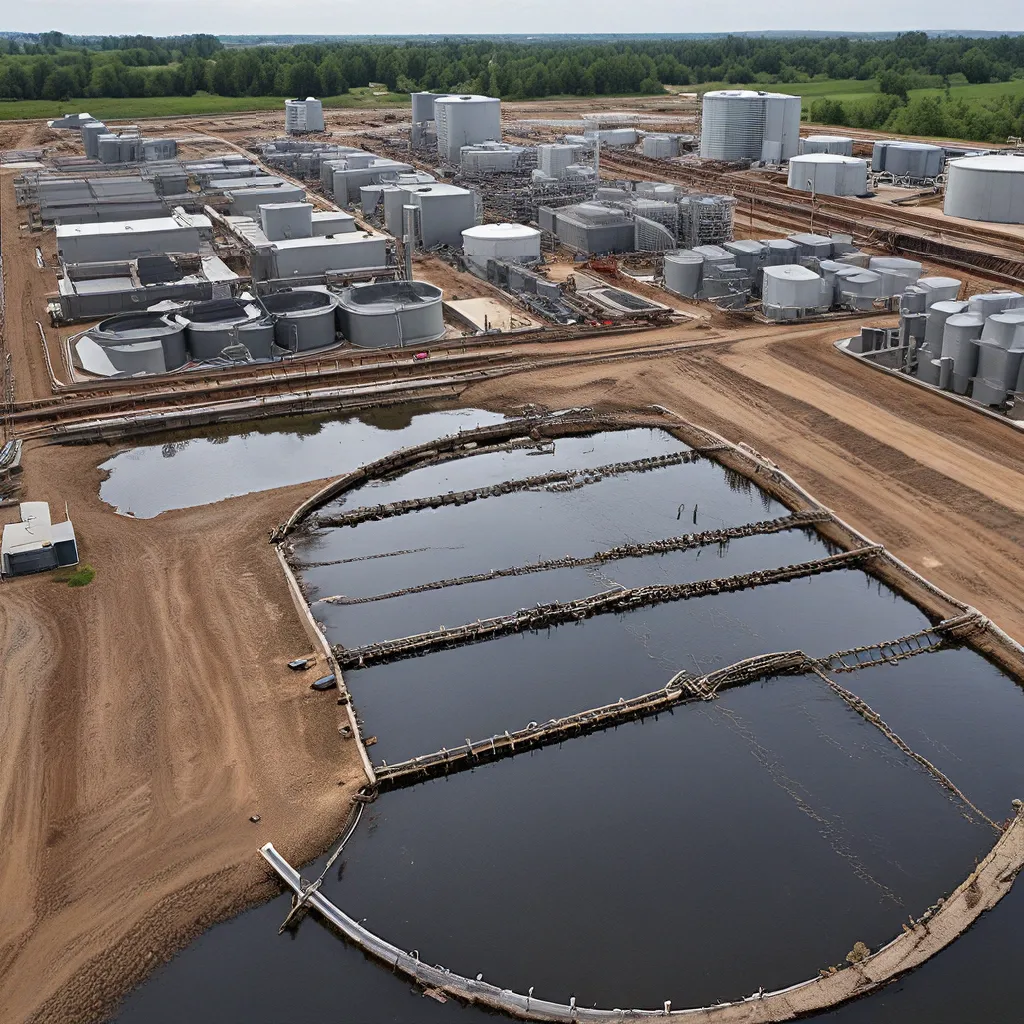
In the intricate world of waste management, the concept of the biorefinery has emerged as a game-changer, promising to revolutionize the way we approach wastewater treatment. As an environmental enthusiast, I’ve been fascinated by the way this innovative approach can unlock a treasure trove of resources hidden within the very waste we often overlook.
Embracing the Biorefinery Approach
The biorefinery concept is all about maximizing the potential of our waste streams, transforming them from liabilities into valuable assets. Instead of simply treating wastewater to meet regulatory standards, the biorefinery approach encourages us to view it as a veritable buffet of renewable resources waiting to be harvested.
Recent research has shown that wastewater can be a rich source of biofuels, bioplastics, and even high-value chemicals. Imagine the possibilities – instead of flushing away precious resources, we can capture and repurpose them, creating a more sustainable and circular system.
Unlocking the Hidden Potential
One of the key aspects of the biorefinery approach is the concept of resource recovery. Rather than simply treating wastewater to meet regulatory standards and then discharging it, the biorefinery model encourages us to extract every last bit of value from the waste stream.
Cutting-edge technologies allow us to recover nutrients, energy, and even valuable metals from wastewater. These resources can then be used to generate biofuels, produce sustainable chemicals, or even fertilize agricultural lands.
Imagine a world where the very waste we flush down the drain becomes a source of renewable energy and nutrient-rich fertilizers. It’s a vision that’s not only environmentally responsible but also economically viable.
Maximizing the Circular Economy
The beauty of the biorefinery concept lies in its ability to close the loop on waste management. By recovering and repurposing the resources within wastewater, we can create a more circular economy – one where waste is no longer simply discarded, but rather reintegrated into the production cycle.
Emerging technologies are making it possible to extract high-value compounds from wastewater, such as bioplastics, biofuels, and even specialized chemicals. These resources can then be used to manufacture new products, reducing our reliance on fossil-based raw materials and minimizing our environmental impact.
Imagine a future where the wastewater treatment plant down the street becomes a hub of renewable energy production and sustainable chemical manufacturing. It’s a future that’s not only cleaner and greener, but also more economically robust.
The Challenges Ahead
Of course, the journey towards a fully-realized biorefinery model is not without its challenges. Integrating these innovative technologies into existing wastewater treatment infrastructure can be complex and costly. There are also regulatory hurdles to overcome, as well as the need to educate and engage both the public and industry stakeholders.
Despite these obstacles, I believe the potential benefits of the biorefinery approach far outweigh the challenges. By embracing this transformative concept, we can unlock a treasure trove of renewable resources, reduce our reliance on fossil fuels, and create a more sustainable future for generations to come.
Intrigued by the possibilities? I encourage you to explore the world of wastewater treatment and the biorefinery concept further. Who knows what hidden gems you might uncover in the seemingly mundane world of waste?
And if you’re looking for a partner to help you navigate this exciting new frontier, be sure to check out Alpha Wastewater – a leading provider of innovative wastewater treatment solutions that are transforming the industry one drop at a time.